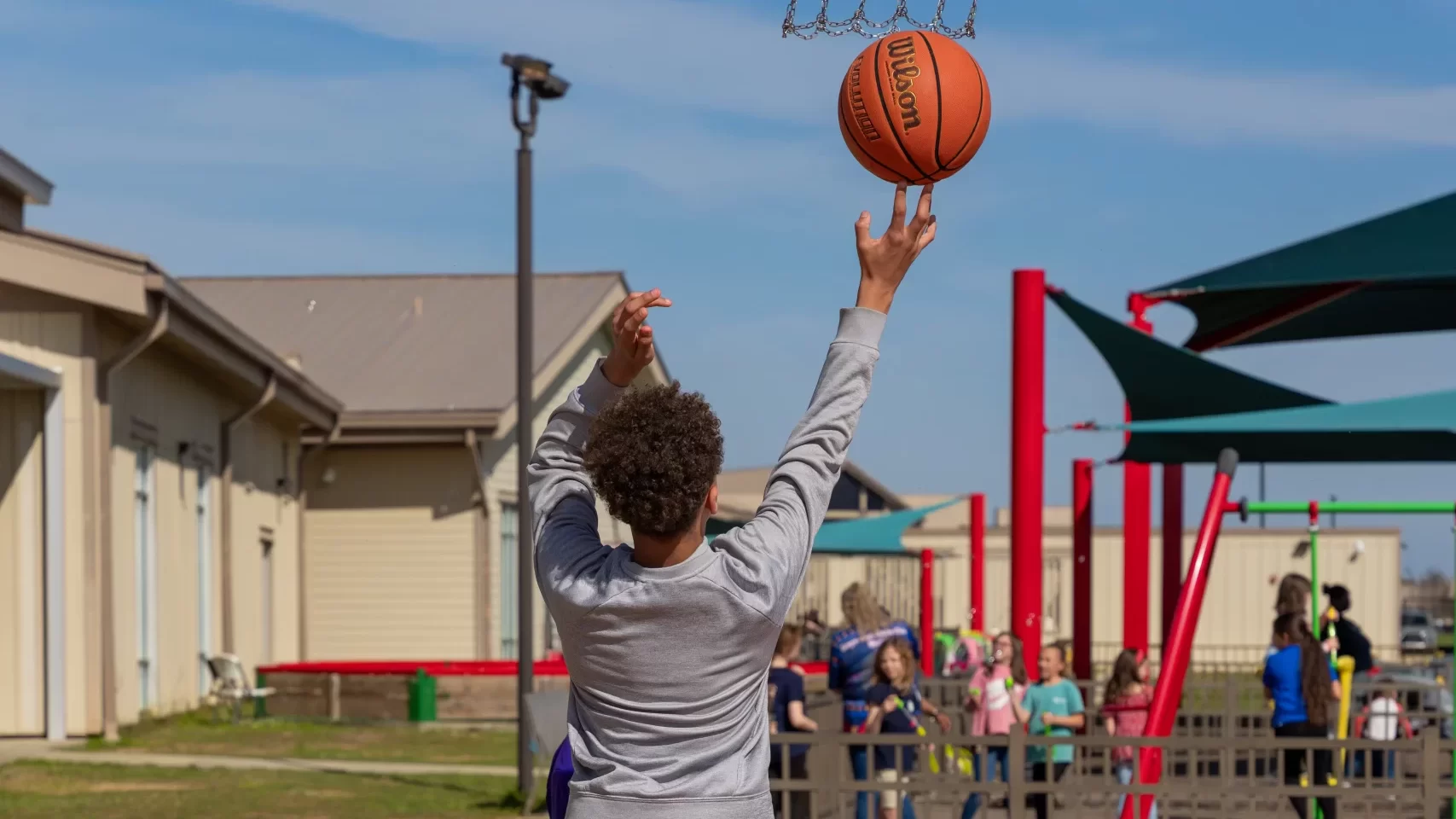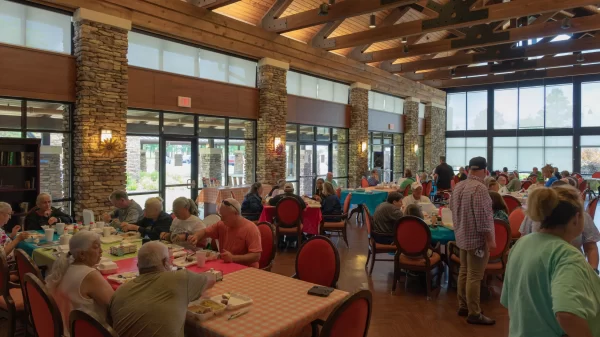It’s around 3 in the afternoon on a late-September day, and I am standing in the large dining room of the senior center on the Poarch Band of Creek Indians’ reservation. At this point, in a mere two hours or so, I have been introduced to roughly three dozen people and held conversations about everything from Poarch Creek history and federal laws to the inner workings of an assisted living facility to the plan behind a state-of-the-art wifi system.
To be honest, I don’t remember much of it, because it’s like trying to remember individual droplets of water as you’re being blasted by a garden hose. But I’ve gotten the gist of it and I have the recorder going on my iPhone, so I’m covered.
This is how the next two days will go, as I crisscross the reservation, popping in and out of various buildings and meeting about 10,000 different people, on this Poarch Creeks tour.
Truthfully, when I accepted the invitation from PCI officials to go on this tour, I was fairly skeptical of it all. I’d been to Atmore before. I’d been to the casino. I’d even been over to the PCI government offices several years ago, met with Poarch Creek officials, talked about the tribe and the reservation and the goals they had.
Not to mention, I’ve been covering this state, mainly through political reporting, for a couple of decades now. I knew the Poarch Creeks. We’ve had a hot-and-cold relationship for the better part of a decade, at least. I’ve praised them at times. I’ve criticized them at times.
And I knew them.
Except … I didn’t. And I’d wager that you don’t know them very well either.
Because if more people did know them – and knew what they’ve accomplished – some things might be different around this state.
On Wednesday, I published the first of a few stories about that tour. It was entitled “The Poarch Creeks you don’t know,” and it was basically a blanket story about the trip to hit the high points and give people a general understanding of the tribe and the reservation in 2024. I’ll have a few more stories that delve into specific topic areas.
I think it’s safe to say, though, that I was impressed.
No, not that they have nice things or a lot of money. We all knew that. They’ve been operating a successful gaming company for the better part of two decades now and they’re making half-billion-dollar deals all over the country. We know about the wealth.
The striking part to me was what they’ve done with that wealth in terms of community service. And how that service has changed the community.
By “community service,” I’m not talking about donations to charity or giving kids bikes. I’m talking about actually servicing an entire Native American community by meeting needs and providing meaningful services to those who need it most.
I heard stories about turnarounds in personal health – and met the people who starred in those stories – that you wouldn’t believe. A community that went from extreme poverty and rarely, if ever, visiting a doctor’s office now has high quality medical care available every day for free. Free general practitioner visits. Free checkups. Free physical therapy. Free mental health care. Free addiction services. Free (or almost free) pharmaceuticals.
The change in demeanor among tribal members over the past decade or so has been remarkable, several people told me. People seem, well, happier.
An elderly tribal member told me: “It’s like a dark cloud was lifted off of here as people’s health improved.”
I suppose that’s easy to understand. I mean, just imagine how much better your life would be if you weren’t paying an arm and a leg for health care all the time or weren’t delaying treatment for a painful ailment because it cost too much. Whole new world, right?
It’s also a new world in terms of educational opportunities on the reservation. In Wednesday’s piece, I wrote about the way the tribe has overcome education discrimination and turned it on its head. But it’s more than that.
There’s a top notch pre-K program. The schools have been improved and have resources that older generations didn’t even dream of. And tribal officials have learned how to take advantage of federal programs and grants that open students up to a whole world of opportunities for scholarships and training and doctoral programs.
One of the biggest concerns now in terms of education: They’re doing too good of a job.
The kids are all leaving because they have better opportunities out of state or in other parts of this state.
That didn’t happen simply because of a casino. It happened because smart people took advantage of a business opportunity and then redirected the funds towards serving the betterment of the community.
And it created a better community. In half a generation.
That was the most striking thing about the entire trip.
Here was this community in south Alabama, not hiding from anyone, subjected to most of the same conditions and mindsets. Except, they tried things a different way. Not a Republican or Democratic way. Not a conservative or progressive way. But a “let’s act like we actually give a damn about our people” way.
Maybe such a mindset is only possible today for Native Americans (or other marginalized and mistreated groups), because they’ve been forced for so long to look out for each other since no one else was going to. But it certainly could do Alabama as a whole some good.
Imagine the changes in this state if we tried things the Poarch Creek way. If we gave health care to those who need it instead of pretending that moochers wouldn’t work. (The opposite has been true on the reservation. I asked). Or if we actually took care of our mentally ill citizens. Or if we provided quality elderly care to our seniors, even the poor ones. Or if we took revenue from gambling and actually used it to improve our public schools, providing our poorest communities with the same, or more, resources as wealthy areas.
You don’t actually have to imagine it. It’s being done right now in Atmore. And it’s going quite well.
Somewhere along the way during that tour, as I met just decent person after decent person, it occurred to me that maybe there’s a reason we don’t know more about the Poarch Creeks. And that what we do know is often tied, suspiciously, to gambling stories, usually with a hint of nefariousness.
Maybe it’s because if we all actually got to know the Poarch Creeks and came to understand that they’re as normal Alabama as anyone you’d meet – complete with the accents and addictions to college football – that some people might start wondering why all the rest of Alabama wasn’t doing things their way.




















































